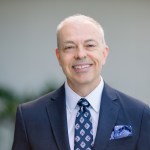Dr. Alfred Calabrese • “My Invitation To You”
EWTN will broadcast the Mass later on that same evening.
Pope Saint Paul VI (3 April 1969): “Although the text of the Roman Gradual—at least that which concerns the singing—has not been changed, the Entrance antiphons and Communions antiphons have been revised for Masses without singing.”
Dr. Alfred Calabrese is a conductor, educator, composer, scholar, and church musician. Having worked in academia for two decades, he felt called to enter full-time work in the Catholic Church, and since 2007 has directed the music at Saint Rita Catholic Church. He and his wife live in Dallas, TX. They have two grown children. —Read full biography (with photographs).

EWTN will broadcast the Mass later on that same evening.

On 9 October 2025, I was pleased to interview the legendary Paul French.

Below are three compositions I’ve used with great success…

A few years ago, I attended Mass at Westminster Cathedral in London…

A month of William Byrd … in Dallas, Texas!

“The Byrd Masses were printed without title pages, and with no reference to a composer. It was too dangerous to do so.” —Dr. Calabrese
Follow the Discussion on Facebook

You will hear, as the service progresses, how unisons become more and more refined and how subtlety finds its way into the psalmody.
Follow the Discussion on Facebook

I am imagining a new ensemble, built out of necessity, for the singing of polyphonic motets and even Mass ordinaries.
Follow the Discussion on Facebook

It stands to reason that if someone wants to sell a lot of books, he should put something in there that people want to buy.
Follow the Discussion on Facebook

If someone is not entertained watching a live streamed Mass, they can just change the channel.
Follow the Discussion on Facebook

“I have made the mistake in the past of scheduling a whole set of new pieces for three of four weeks in a row.”
Follow the Discussion on Facebook

So many are distraught that they are unable to receive the Eucharist. The dryness of the Lenten desert is real.

I am thrilled that my parish, St. Rita Catholic Church in Dallas, TX, will host Mr. Latry this Sunday evening for an extraordinary concert of French music.
Follow the Discussion on Facebook

Our choirs should not sound mechanical. Beautiful music its waiting to be discovered.
Corpus Christi Watershed is a 501(c)3 public charity dedicated to exploring and embodying as our calling the relationship of religion, culture, and the arts. This non-profit organization employs the creative media in service of theology, the Church, and Christian culture for the enrichment and enjoyment of the public.